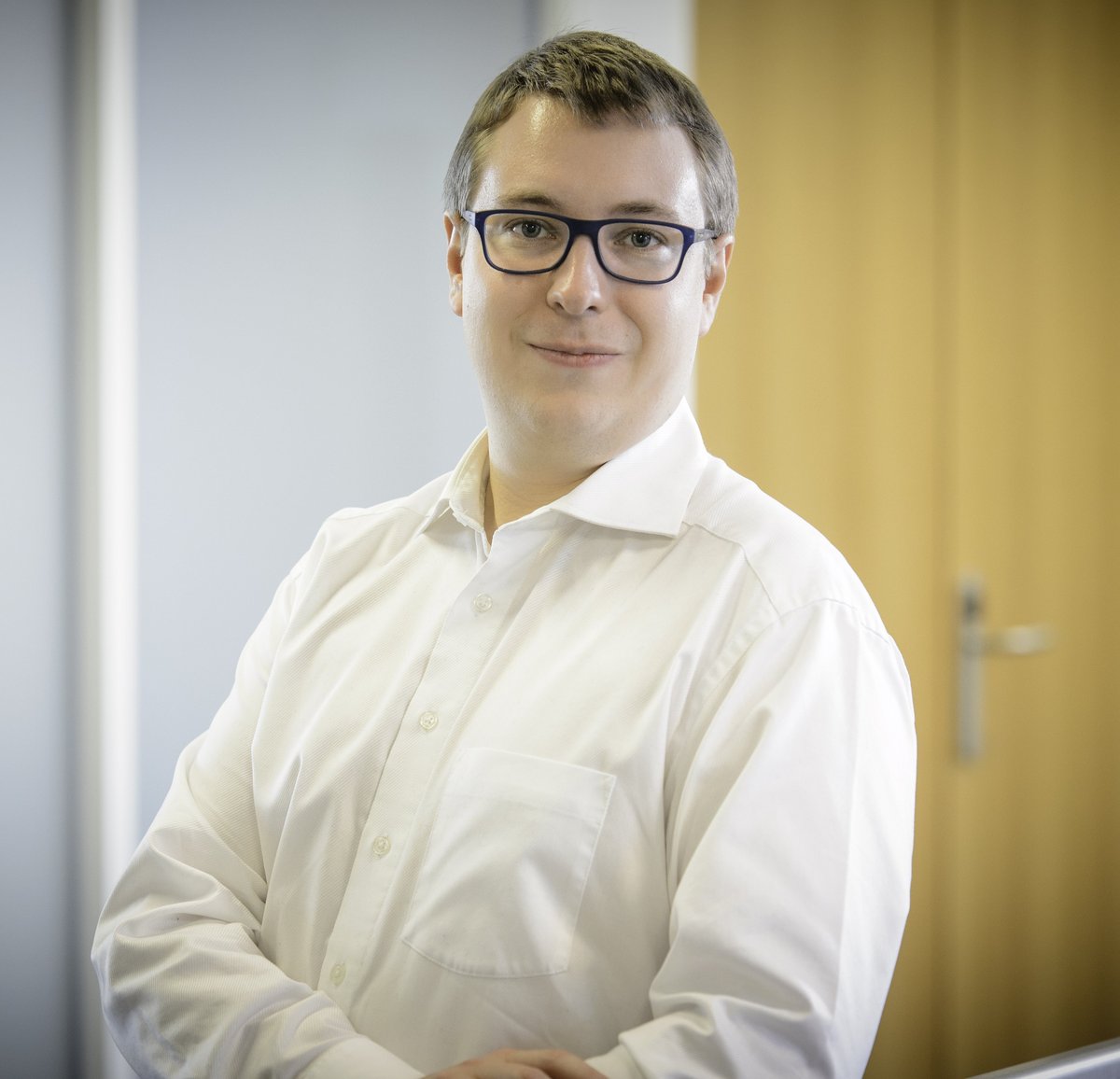
Humans love playing together. Why? Because they are “built” to engage in collaboration. Our modern, technological society relies heavily on cooperative behavior. Games offer an enjoyable and motivating avenue for studying collaboration in laboratory settings. My primary research focus involves collecting EEG data in dyadic or group hyperscanning setups while participants engage in collaborative gameplay.
Professional activity
since 05/2019 Academic staff member, doctoral candidate
Working Group General and Biological Psychology, University of Konstanz
Qualification
- 2018-2019 Master of Science in Psychology, University of Konstanz
Very good with distinction
Master’s thesis: Emotional Modulation of SSVEP and ERP Responses during Affective Picture Processing - 2013-2018 Bachelor of Science in Psychology, University of Konstanz
Very good with distinction
Bachelor’s thesis: Emotional Facilitation of Visual Processing: An ERP Study
Insight into the seminar: “A hands-on beginner's guide to EEG” - Theoretical basics and practical applications
“A kingdom for your thoughts!” - The dream of being able to watch the human mind at work is an ancient one. The cognitive neurosciences now have a variety of techniques at their disposal to visualize neuronal processes in our brain. Electroencephalography (EEG) is one of the oldest neuroscientific methods. Its high temporal resolution and great methodological flexibility in measurement and evaluation make the EEG one of the most widely used tools in cognitive neuroscience, neuropsychology and neurology to this day. The seminar “A hands-on beginner's guide to EEG” not only teaches the theoretical basics of EEG, but also gives students the opportunity to gain hands-on experience with mobile EEG systems and data collection.
-
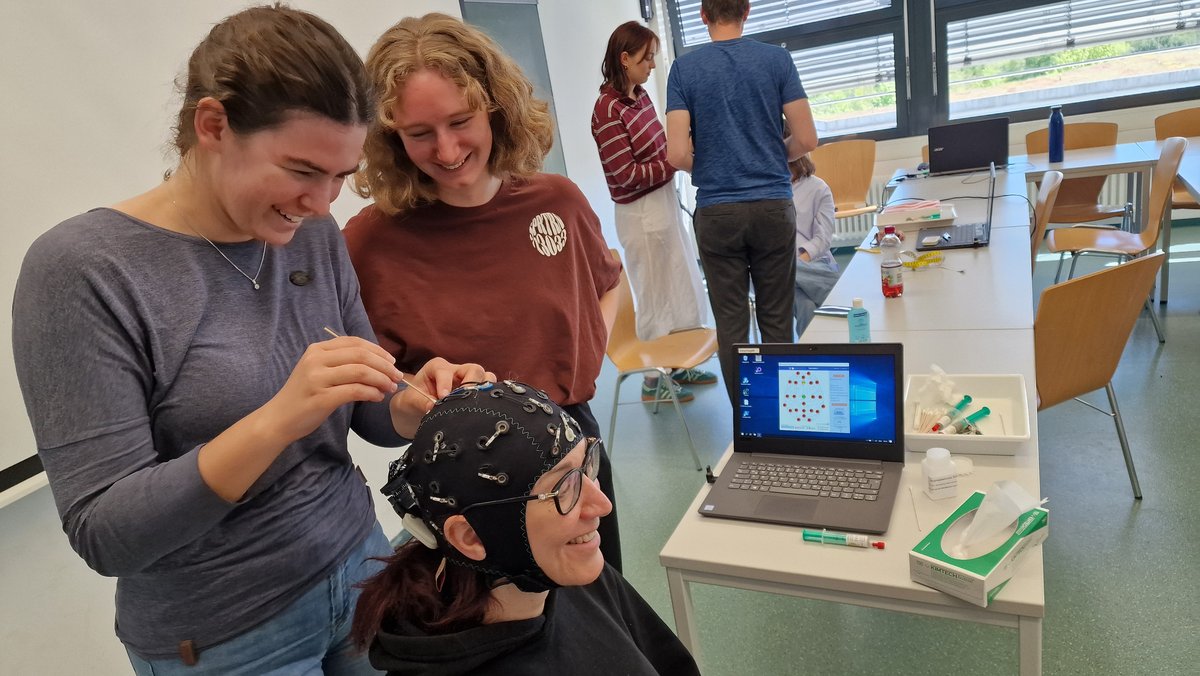
Verbesserung der Übergangswiderstände beim mobilen EEG mittels Gel ©Karl-Philipp Maria Flösch -
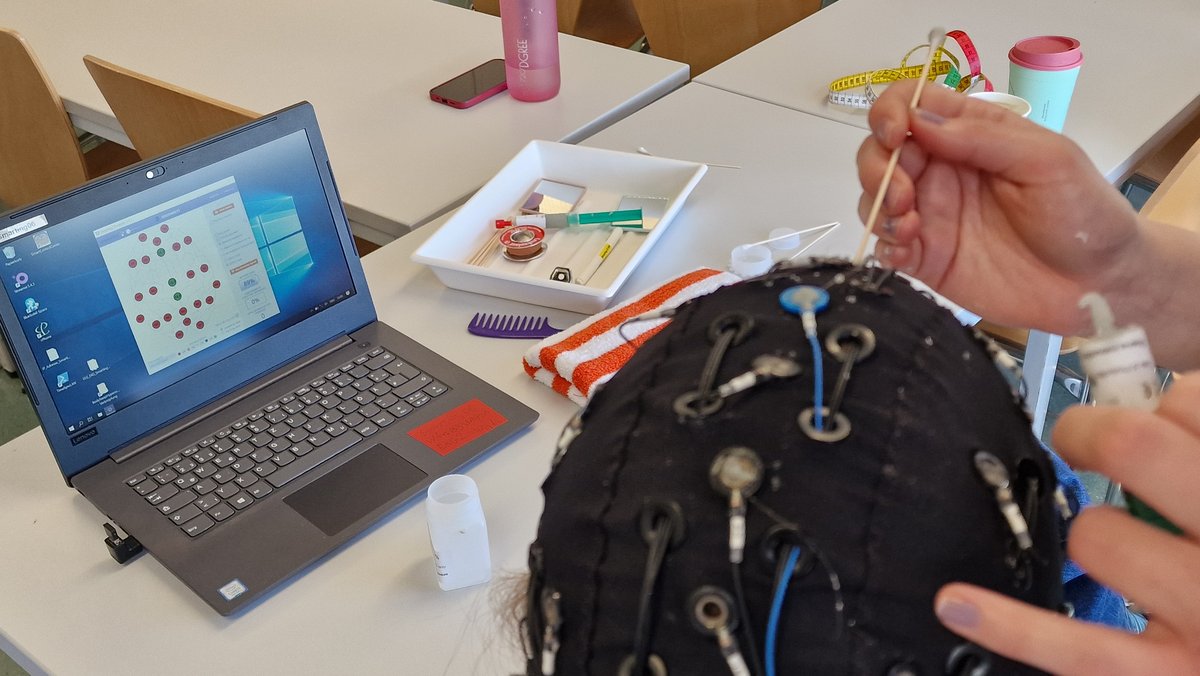
Verbesserung der Übergangswiderstände beim mobilen EEG mittels Gel, auf dem Display werden Übergangswiderstände in Echtzeit angezeigt ©Karl-Philipp Maria Flösch -
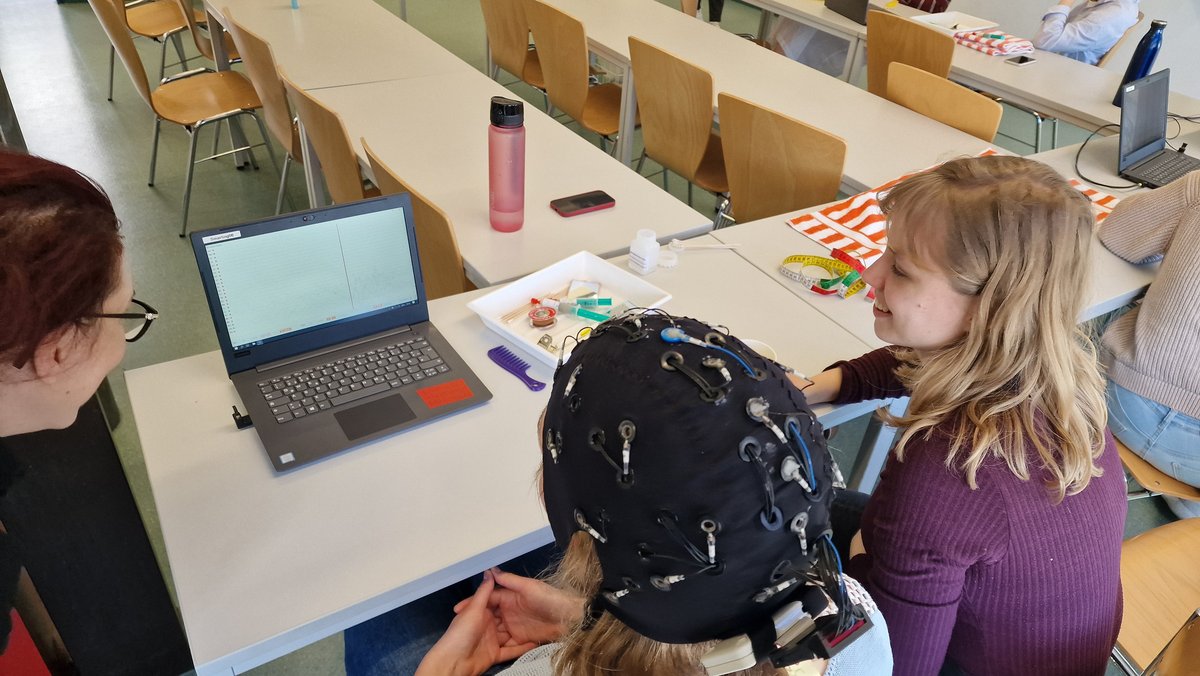
Studierende auf der Suche nach Alpha-Hirnwellen ©Karl-Philipp Maria Flösch -
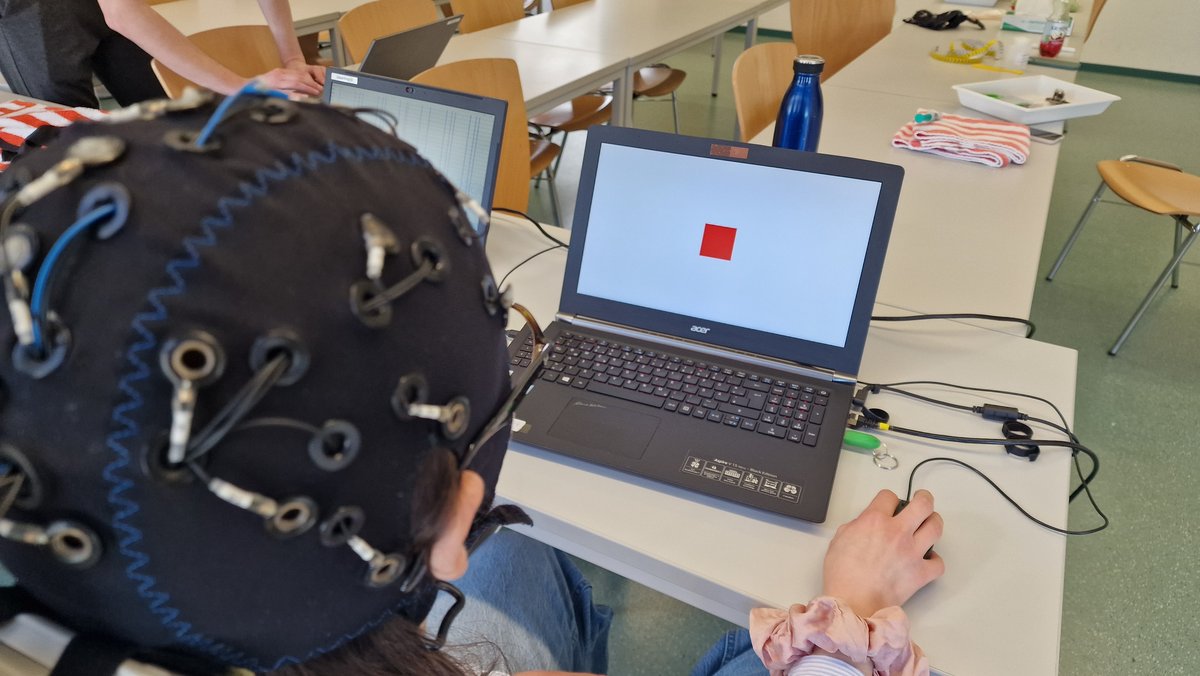
Studierende probieren ein klassisches EEG-Experiment (Oddball) aus ©Karl-Philipp Maria Flösch
